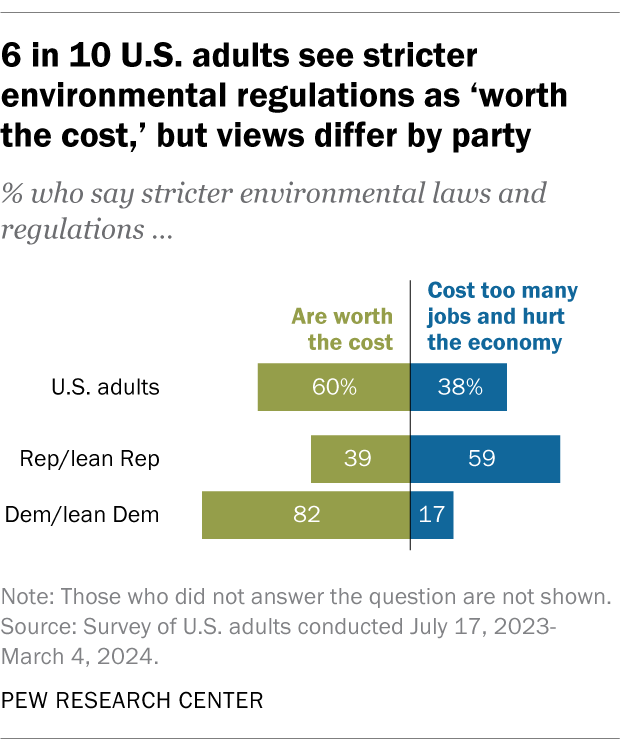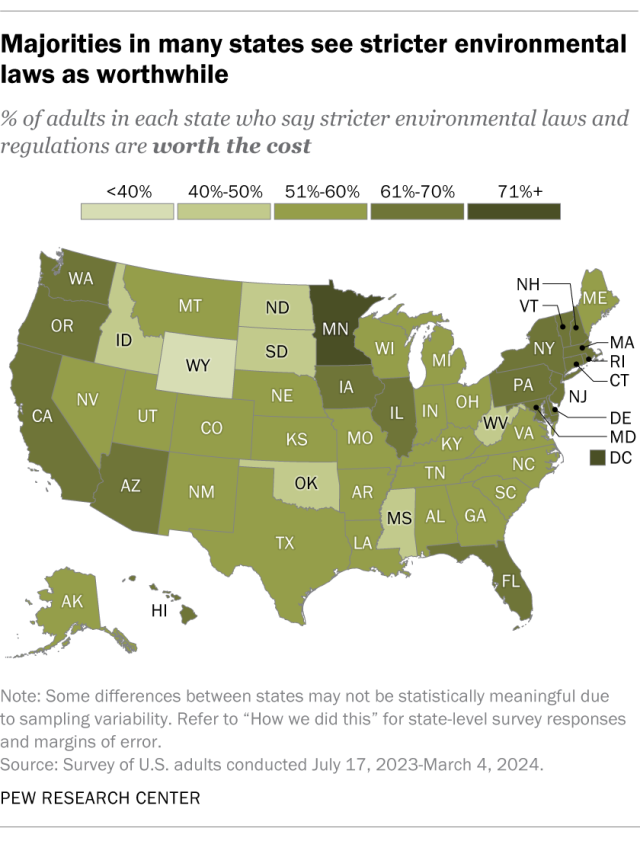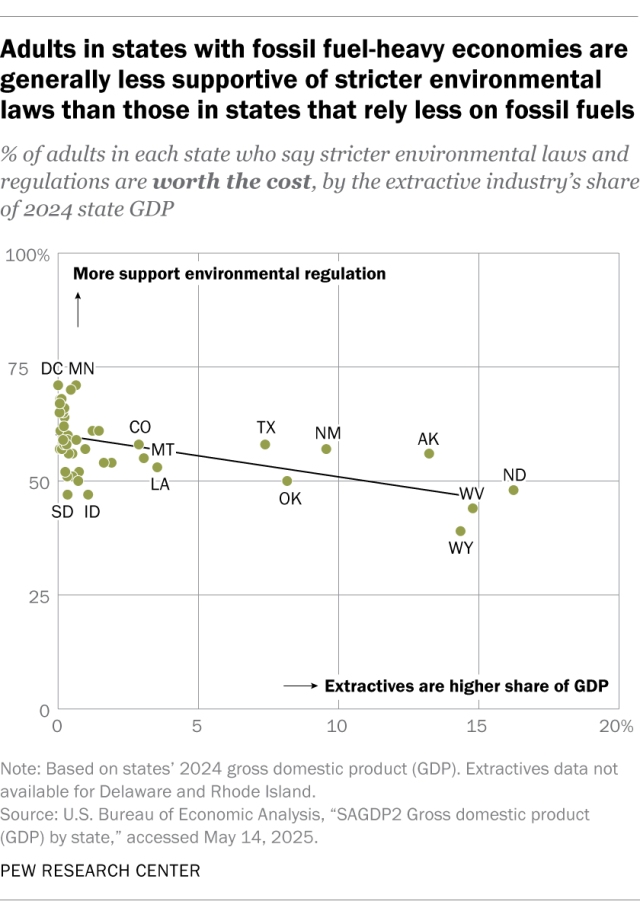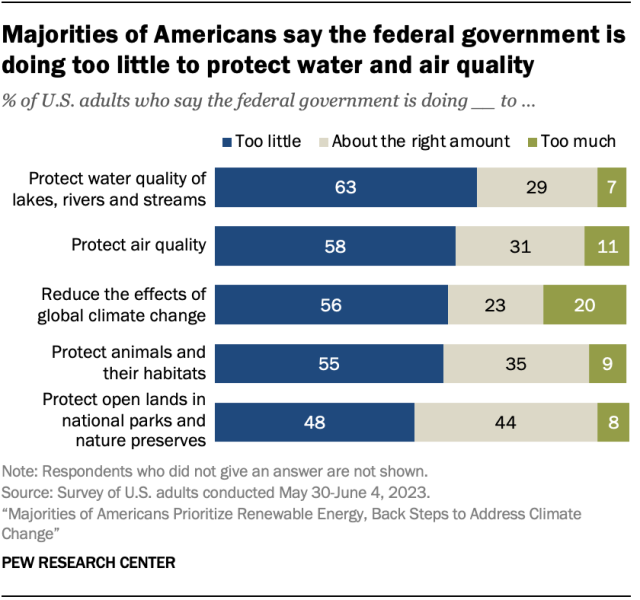More support than oppose stricter environmental laws in many states
May 19, 2025

The U.S. Environmental Protection Agency recently announced plans to roll back environmental regulations, including for the oil and gas industry.

Nationally, six-in-ten Americans say stricter environmental laws and regulations are worth the cost, while 38% say they cost too many jobs and hurt the economy, according to a 2023-24 Pew Research Center survey of 36,908 U.S. adults.
As with many climate and energy issues, opinions vary sharply by party. Most Democrats and Democratic-leaning independents think these laws are worth the cost (82%), while Republicans and GOP leaners tend to say they cost too many jobs and hurt the economy (59%).
Opinions also vary widely by state.

In 29 states and the District of Columbia, majorities of adults say stricter environmental laws and regulations are worth the cost. Views are more split in 20 other states, while in Wyoming, a majority of adults say these laws cost too many jobs and hurt the economy.
D.C. and Minnesota have some of the broadest support for tougher environmental regulations: 71% of adults in each place say these are worth the cost. And around two-thirds of adults in Oregon (68%) and Washington (67%) see these laws as worthwhile.
About six-in-ten in Florida and Pennsylvania (61% each) say the same, while majority support in Missouri sits at the lower end of the spectrum (56%).
Opinions in many other states are more divided – especially in those that tend to lean Republican overall. For example, in Alabama, 52% see stricter environmental laws as worth the cost, while 45% say they cost too many jobs and hurt the economy. In Mississippi, 50% see these regulations as worthwhile and 46% do not. Still, differences across most states persist even after controlling for party.
Views in states with more fossil fuel-reliant economies
Since environmental laws related to the energy industry are highly debated, we also looked at attitudes about environmental regulations in states whose economies rely the most on fossil fuel production.

The extractive industry – which includes coal mining as well as oil and natural gas drilling – makes up 5% or more of the state gross domestic product (GDP) in seven states, according to 2024 data from the U.S. Bureau of Economic Analysis. These states are North Dakota (extractives account for 16% of GDP), West Virginia (15%), Wyoming (14%), Alaska (13%), New Mexico (10%), Oklahoma (8%) and Texas (7%).
Residents of states where the extractive industry makes up a larger share of their state GDP are generally less likely to say that stricter environmental laws are worth the cost than are adults in states with economies that don’t rely as heavily on fossil fuel production.
For example, 48% of North Dakotans and 39% of Wyomingites see these laws as worth the cost. This compares with about seven-in-ten in Vermont (70%) and New Jersey (68%) – which both derive less than 1% of their GDP from the extractive industry.
In addition to their generally favorable views of stricter environmental laws and regulations, Americans see room for improvement in certain areas of environmental protection.

Roughly six-in-ten Americans say the federal government is doing too little to protect the quality of lakes, rivers and streams (63%) and air quality (58%), according to a summer 2023 Center survey.
Majorities also think the federal government should do more to reduce the effects of global climate change (56%) and protect animals and their habitats (55%). Still, 20% say the government is doing too much to curb global climate change.
Americans are split on the potential economic impact of climate policies, according to an October 2024 Center survey. They are just as likely to say policies aimed at reducing the effects of global climate change usually help the economy as they are to say these policies usually hurt it (34% each). Another 30% say these policies make no difference for the U.S. economy.
Note: Here are the English and Spanish paper questionnaires (and the combined English/Spanish questionnaire for web/phone administration) used in this analysis, along with responses, and the survey methodology.
Sample sizes and margins of error vary a lot from state to state. Some differences between states may not be statistically meaningful due to sampling variability and other sources of error that are inherent in all survey data. Refer to this table for state-level responses to the survey question and margins of error.
Search
RECENT PRESS RELEASES
Related Post




